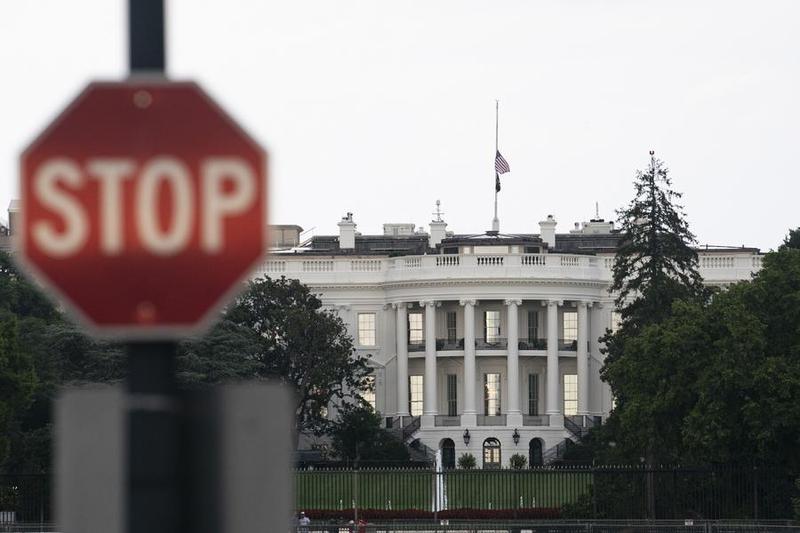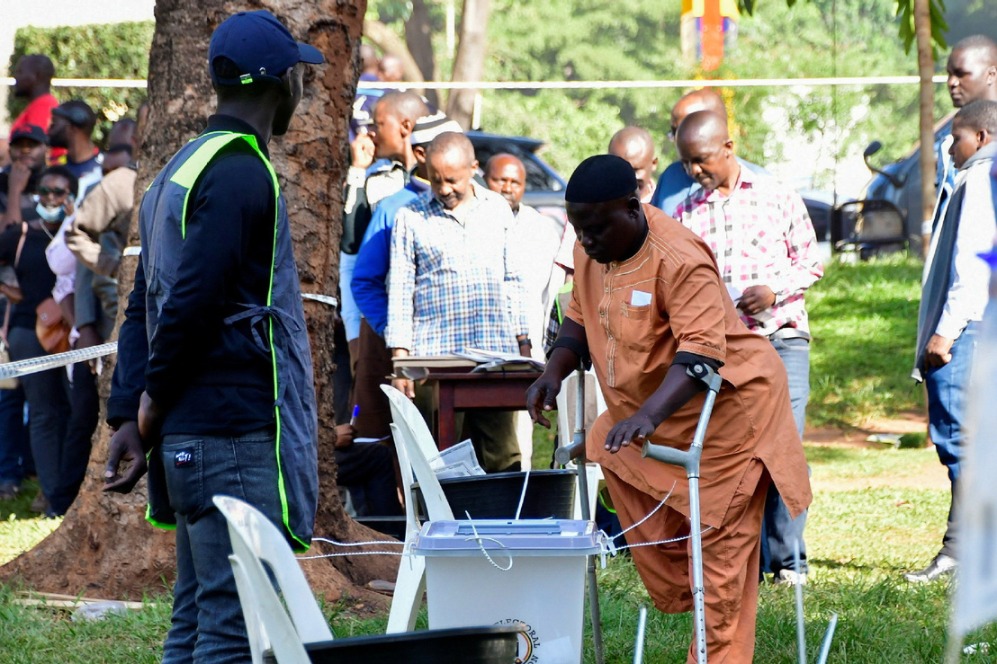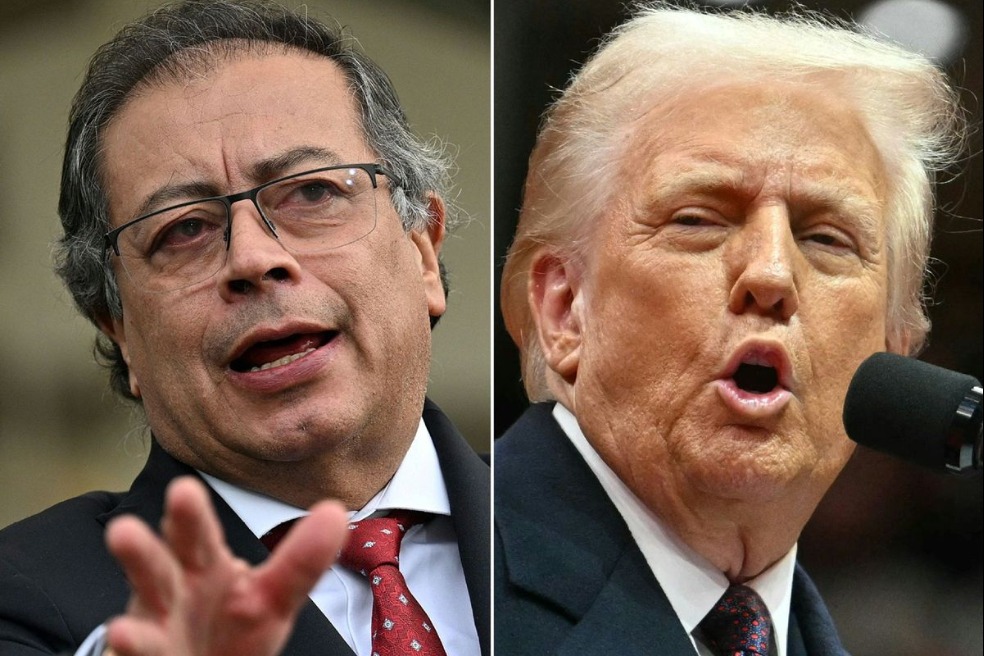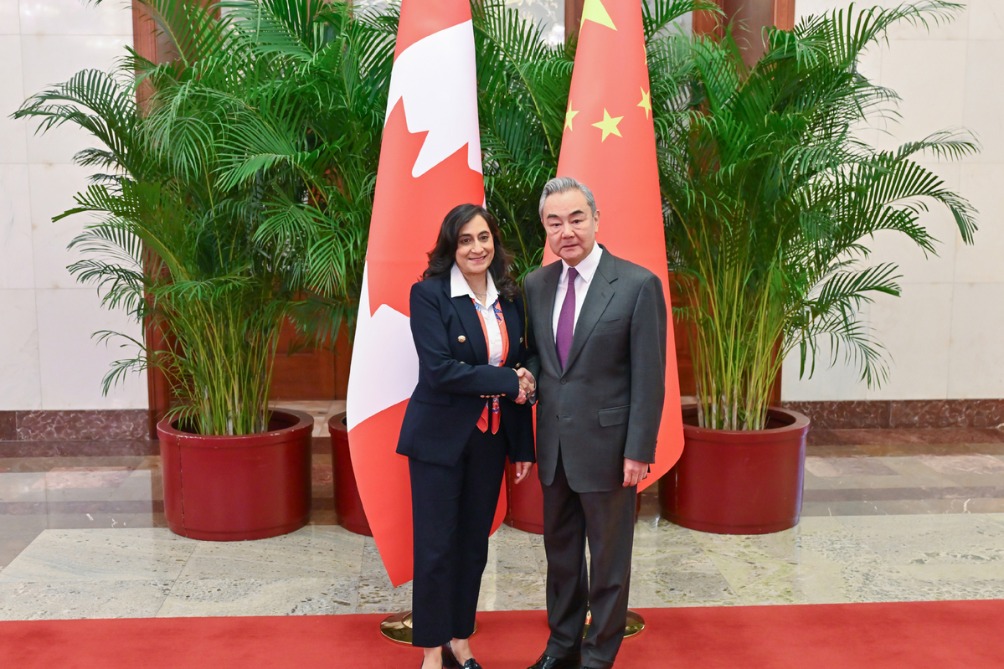US should shed war mentality for Mideast peace talks


There are some certainties in the aftermath of the United States' attack on three Iranian nuclear facilities, but none of them should make the people of the US proud.
The administration of US President Donald Trump has announced a ceasefire between Israel and Iran, but it is on shaky ground with the two Middle East countries reportedly continuing to trade strikes. Therefore, any credits claimed by the White House for negotiating the ceasefire should be ignored.
The reality is that the US attacked Iran over the weekend, instead of giving diplomacy a chance to resolve the situation, which could have guaranteed fewer bombs being dropped and avoided more pressure on the already strained relations between Washington and Teheran.
But that only scratches the surface when considering how the US has again undermined global stability through its brazen assault.
First, the targeted bombings of the Fordow, Isfahan and Natanz nuclear sites almost certainly violated international law.
Unless there is direct authorization from the United Nations Security Council or there is clear evidence to indicate it is an act of self-defense, the legality of such an attack is suspect.
Obviously, the US never sought support from the UN, and there is no reason to believe that Iran was about to attack the US. The US often claims that certain countries are seeking to destroy the global order, but the truth is the US itself frequently mocks the international order.
Second, the US strikes reaffirmed that the country operates under a war-first mindset, which also means Washington has bestowed upon itself the right to determine which nations should feel the US' wrath and when. Instilling fear among other countries might make the US feel tough, but such an attitude further isolates it on the world stage.
Showing restraint, a quality cultivated and demonstrated by rational leaders, is something that US leaders seem unable to do. Perhaps worse, and quoting from The Rutherford Institute, the perpetual war mentality displayed by Washington ensures that "America is still stealing from its own people to fund a global empire". Nonstop war "isn't about national defense; this is empire maintenance".
Third, unsanctioned and unprovoked attacks on other nations also damage the US' claim to be a country that believes in human rights. It was only about 18 months ago that the UN blasted the US for its failures in this area. Concerns ranging from healthcare to immigration, abortion rights to excessive use of force by police were outlined, and they pointed to a grim conclusion: Washington talks the talk but does not walk the walk when it comes to its claim of being a champion of human rights.
The incumbent Trump administration cannot be solely blamed for all this. However, there is no question that it sees no reason to play by any rules that it does not like. The Carnegie Endowment for International Peace might have best summarized what the administration has done since Trump took the presidency early this year. It stated that the US' "ambition is to replace the international rule of law with the law of the jungle".
Rather than a global order that restricts great power privileges, the US envisions a regionalized one in which powerful nations pursue spheres of influence and throw their weight around, according to the institution.
A ceasefire between Iran and Israel has been announced, but there is no guarantee it will last, and even if it does for how long.
Earlier this year, Trump blasted Ukrainian President Volodymyr Zelensky for "gambling with World War III", because the latter appeared unwilling to work with the US in reaching a peace deal with Russia to end the conflict that is now in its third year.
Ironically, the US itself gambled with the risk of another world war when it bombed Iran. Its actions made the world wonder if the Israel-Iran conflict would widen and engulf the whole region, and potentially drag countries outside the Middle East into a protracted war.
Achieving peace in the Middle East may not be an easy task, but the US has a chance to do something right for once. Let's hope it takes a step back, gives up its war mentality and stops its forceful interventions to allow sober conversations to take place regarding Iran and its nuclear capabilities to ensure peace and stability in the region.
The author is an associate professor in the Communication and Organizational Leadership Department at Robert Morris University in Pennsylvania, the United States.

































